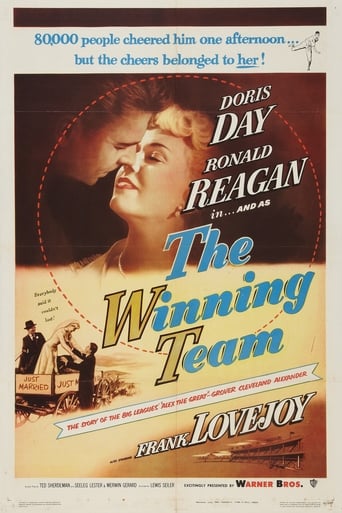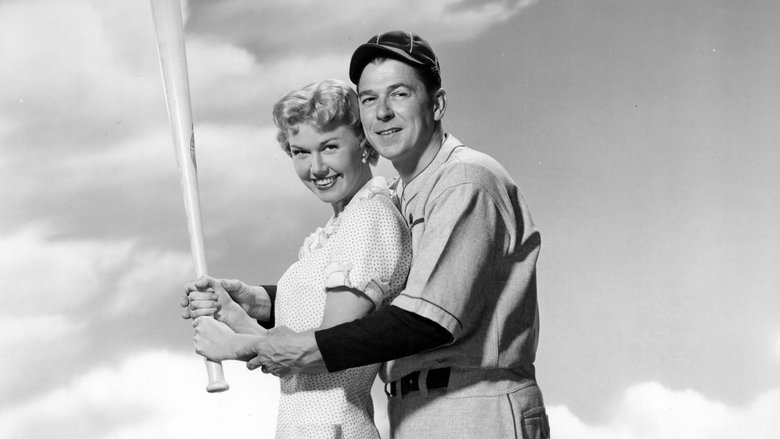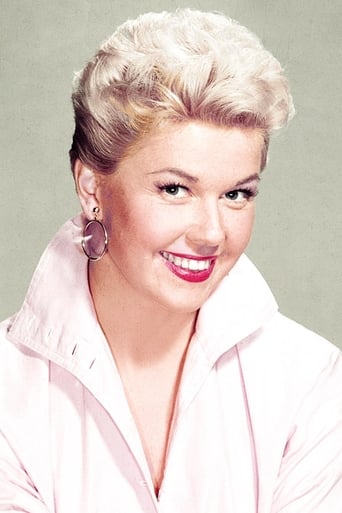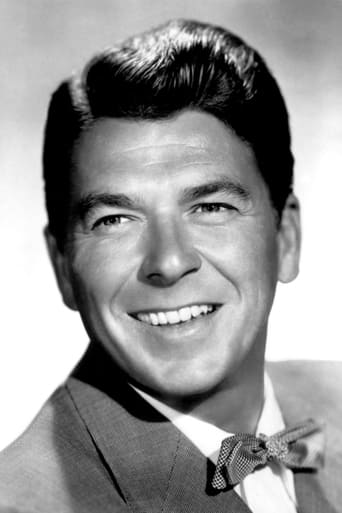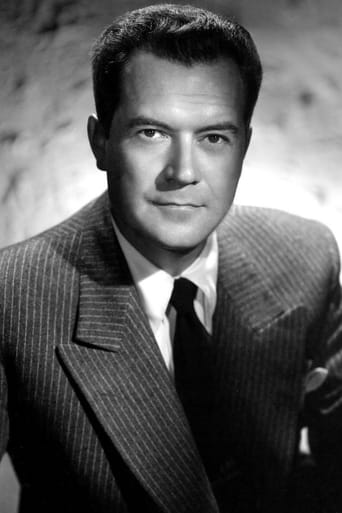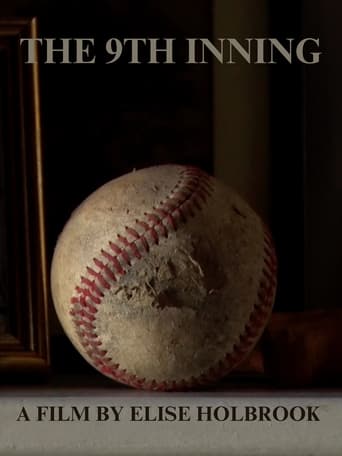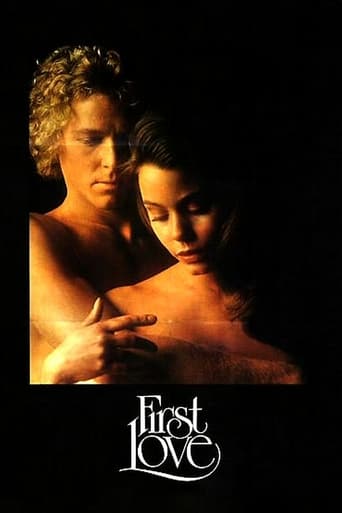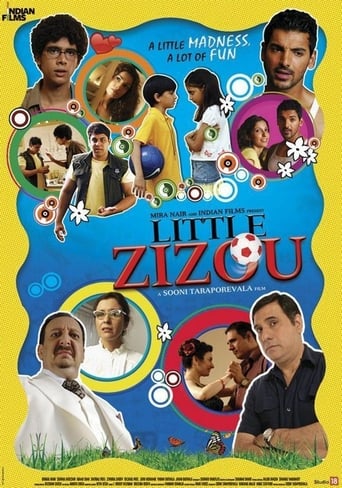The Winning Team (1952)
Poor health and alcoholism force Grover Cleveland Alexander out of baseball, but through his wife's faithful efforts, he gets a chance for a comeback and redemption.
Watch Trailer
Cast


Similar titles
Reviews
Crappy film
Admirable film.
It’s fine. It's literally the definition of a fine movie. You’ve seen it before, you know every beat and outcome before the characters even do. Only question is how much escapism you’re looking for.
The story, direction, characters, and writing/dialogue is akin to taking a tranquilizer shot to the neck, but everything else was so well done.
I remember renting this movie with my mom. She'd recently recovered from a vertigo attack, and I reassured her, "Don't worry, this movie won't make you sick. It's from 1952!" Low and behold, I happened to pick the one film from the silver screen that actually triggered my mom's vertigo; Ronald Reagan's character had a problem with his eyesight and the camera blurred and swirled. After I told her the famous, "Don't look, Mom!" we had a good laugh about it.With that big build-up, the movie had better be good, right? I'm sorry to disappoint you, but this baseball movie starring Ronald Reagan and Doris Day isn't very good. If you're a die-hard baseball fan and happen to love Ronald Reagan, go right ahead. I always get a kick out of seeing him in his young, handsome glory-he looked like my old sweetie pie from high school! Besides the eye candy, it's a pretty mediocre movie. It's a biography of Grover Cleveland Alexander, and shows his midwestern roots, his courtship and marriage to small-town sweetheart Doris Day, his medical problems, and his overwhelming obsession with baseball. He puts the sport above everything else in his life, including Doris, but she steps up to the plate as the "long suffering wife" and supports him through his neglect. The Winning Team doesn't really hold a candle to The Pride of the Yankees, so you're better off just sticking with that one.DLM Warning: If you suffer from vertigo or dizzy spells, like my mom does, this movie might not your friend. There are times when the camera swirls and blurs, and that will make you sick. In other words, "Don't Look, Mom!"
The title of this movie has more to do with the relationship between big league ball player Grover Cleveland Alexander and his wife Aimee than it has to do about a successful sports franchise. As with many of these sports biopics, I learn more about the historical character from reading other movie fan reviews on this site than from the actual picture, for which I'm quite grateful.The first thing that caught my eye was when the opening credits rolled with Doris Day billed over Ronald Reagan, somewhat backwards considering who the title character was, but probably had something to do with a contractual obligation at the time. A follow up credits screen lists the names of Major League ball players who also appeared in the film, but unless you were a die-hard fan in the Fifties, there's no way you'd recognize any of them. None of them that I recall were mentioned by name in the story.The story has some neat anecdotal stuff in it like Alexander (Reagan) earning a buck and a half to pitch against the Galesburg team, and allowing Rogers Hornsby (Frank Lovejoy) to get a hit when his baseball career might have been on the line. A treat for old time fans would be seeing some of the early ball parks and stock footage from the mid-Twenties glory days, there's even a clip of the Babe running for first base and making an unsuccessful steal attempt at second.In his role portraying Alexander, I thought Reagan was generally competent, although some of his mannerisms seemed exaggerated when he attempted to simulate the pitcher's bouts of dizziness and diplopia. The story's best sequences seemed to occur when Alex and Aimee (Day) shared a tender moment, while virtually every baseball scene had Alex throwing nothing but strikes, which seemed to this viewer as rather unlikely considering his real life overall record (373-208), while impressive, still had it's share of losses. An interesting side note, Alexander has the most career wins for a pitcher who never threw a no-hitter; that's for all you sports buffs.Though the movie leaves out a lot of the real ball player's life and troubles due to epilepsy and alcohol, there's some value in catching the film for it's story of a man's perseverance in spite of obstacles to overcome. If you enjoy these era films, one you might try is another film from 1952 featuring yet another pitcher, the inimitable Dizzy Dean in "The Pride of St. Louis".
Winning Team, The (1952) *** (out of 4) Pretty good, if watered down, drama about the career of Hall of Fame pitcher Grover Cleveland Alexander (Ronald Reagan) who started life on the farm but quickly made a name for himself as a pitcher. When his career was apparently over he started to suffer from alcoholism but his wife (Doris Day) gets him back into shape so that he can make a comeback. Once again we have a bio-pic that has been fictionalized but even with this the movie manages to be very entertaining from start to finish thanks to some very good performances. I think there are a few minor issues with one of them being the fact that the studio forced the producer's to cut down on some of the more darker moments. The alcoholism issue is only touched for a few seconds and Alexander's battle with epilepsy is pretty much overlooked. Another minor problem is that this is a movie about Alexander yet a lot of the attention goes to the wife. Day got top-billing but this is certainly Reagan's movie but at the same time there are many scenes that are obviously here just to give Day more scenes and this includes a really bad singing sequence around Christmas time. With all of that said, the rest of the movie is pretty much a winner. Baseball fans are really going to eat up seeing how they were playing back in the day plus we get to view the old-time uniforms and even better is that we get to see some of the old baseball stadiums. There's also quite a bit of stock footage used to try and re-create some moments of the 1926 World Series, which was against the New York Yankees and their Murderers Row. This was Reagan's final film at Warner after fifteen-years worth of service and they certainly let him go out on a high note. I thought Reagan was very believable in the role and manages to look quite natural as a pitcher and he also managed to be very believable in the part of the farm boy. The early scenes with him struggling with his disease were extremely well-done and this ranks as one of the actors better performances. Day is also in top-form even though I think we could have used a little less of her character. Frank Lovejoy gets a good bit as Rogers Hornsby and we get some real-life players including Jerry Priddy, Bob Lemon, Peanuts Lowery and Irving Noren. Frank Ferguson, who most will remember from ABBOTT AND COSTELLO MEET FRANKENSTEIN, plays Day's father here. Again, if you're wanting to truth on Alexander then it's best you go read a book but if you're just looking for some quick entertainment then this film does the job.
In filming the life story of Grover Cleveland Alexander, Warner Brothers made it a story of redemption when in fact it was a story of tragedy. But 1952 movie audiences wanted their happy endings.Grover Cleveland Alexander (1887-1950) was possibly the greatest right handed pitcher in National League history. He played for 3 teams, the Phillies, Cubs, and Cardinals and compiled 373 lifetime victories over a 20 year period.While still in the bush leagues Alexander sustained a serious head injury when a ball struck him right between the eyes while he was a base runner. He had double vision and headaches for a year. During World War I while an artillery officer the noise of exploding shells compounded a seemingly healed injury with a complication of epilepsy. To anesthetize himself, Alexander took to drinking some of that Prohibition whiskey and became an alcoholic. After leaving baseball in 1930 for the next twenty years, Alexander drifted to all kinds of menial jobs, occasionally making headlines with some alcohol related incident. One positive headline was his election to the Hall of Fame in the second round of elections. He was on hand for the dedication of the building in Cooperstown. In 1950 Alex was on hand as the Phillies won their second National League Pennant. Alex was the star of the first pennant winning team in 1915. A month later he was found dead in a cheap rooming house.That unfortunately is the sad truth of the real Grover Cleveland Alexander. This is not the film you will see.Ronald Reagan is just fine and actually comes close to the character of the real Alexander who was a genial and kind man with a terrible drinking problem. This was the final film Reagan made while at Warner Brothers.Doris Day in her second film with Reagan plays Amy Arrants Alexander, his loyal, faithful wife. In her memoirs Doris wrote that during the shooting she and Reagan had a few dates and she remembers him best as a good man who was quite a dancer when they went out. This film also qualifies as a musical for in the beginning Doris has a Christmas number, Old St. Nicholas, and Reagan joins her for the last two bars. Ronald Reagan actually did sing in one of his films.Today Hollywood would have no problem filming the real story which was quite a love story. Amy Alexander married Alex 3 times and divorced him twice, both those divorces an effort to give him a wake up call.But the widow Alexander was an adviser on the film and she got the film made to show the public the husband she wanted them to remember.And baseball fans the world over remember Grover Cleveland Alexander as a great baseball pitcher and a decent and patriotic man whose service to his country caused him a lifetime of triumph and tragedy trying to control the pain in his brain. It's a good legacy that doesn't need any embellishment from Hollywood.

